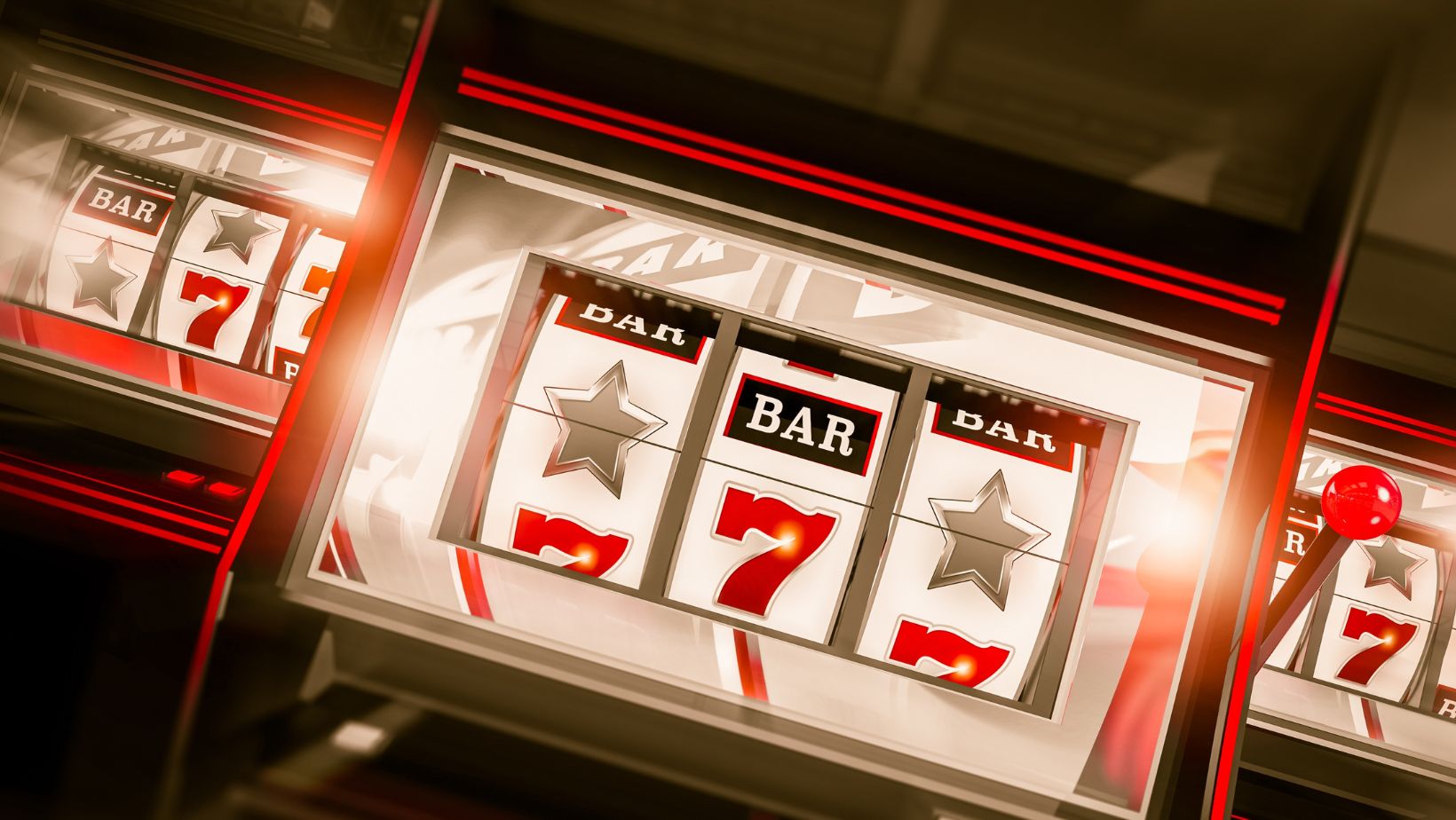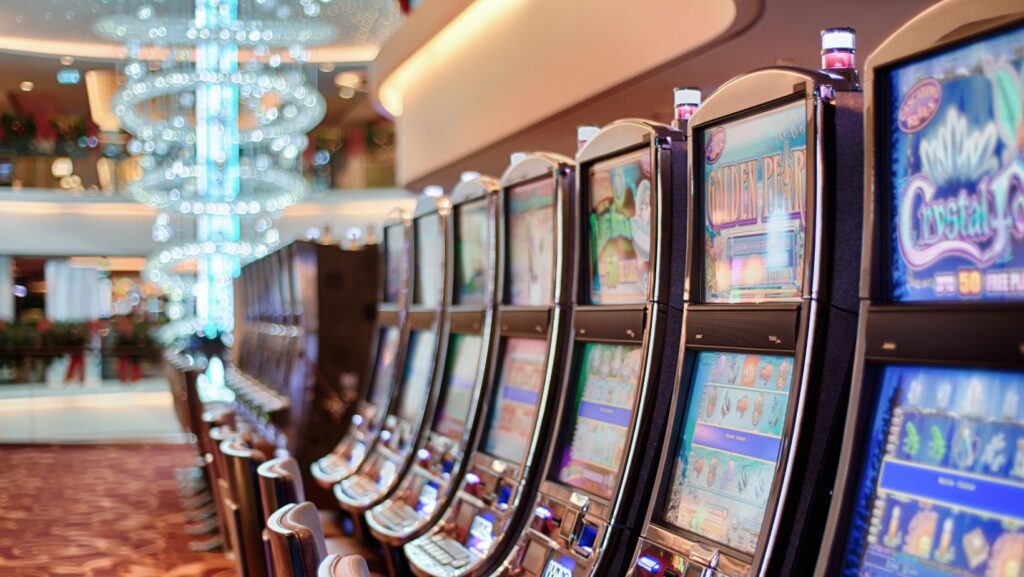In the world of online casino gaming, themed slot machines have become a genre unto themselves—and none more so than those built around blockbuster movies, video game franchises and hit TV series. These aren’t your grandfather’s one-armed bandits; they’re fully packaged entertainment experiences, blending familiar narratives with the thrill of spinning reels.
At first glance it might seem simple: slap a known brand on a slot, add some wilds and scatters, hope for the best. But as the analytics show (and indeed as noted on StranaBy), the reality is far more nuanced. Players tend to spend more time and money when a game evokes an emotional connection, and licensed slots leverage exactly that. According to the source, these themed games lean on recognisable characters, story arcs and cinematics to improve engagement.
What Are Pop-Culture Themed Slot Games
When we talk about “pop-culture themed slots”, we refer to slot game titles that are created around existing intellectual property (IP) such as films, television shows, video games or gaming consoles. The mechanics of play—reels, paylines, bonus features—remain broadly the same, yet the entire visual-audio narrative is designed to reflect the original franchise.
One of the heavyweight draws is the brand-recognition effect: players already know the characters, they’ve watched the scenes, maybe even own the merchandise. That familiarity becomes a form of trust or comfort when choosing a slot game. Studies on slot themes indicate that providers deliberately pick themes that cater to specific demographics (e.g., gamers, film buffs) because the theme alone can drive selection behaviour.
Of course, the licensing side is crucial. Developers must negotiate rights to use characters, soundtracks, imagery and even voiceovers. If the licensing isn’t tight, you end up with half-baked branding that feels weak — and players can sense that. The theme must be implemented with sufficient fidelity so that it doesn’t feel “generic” or “just another slot”.
Evolution of Licensed Slots
The slot machines of the past were simple affairs: three reels, fruit symbols, bells and bars. Themes were minimal. Then came video slots which opened the door to richer audio-visual packages. As the article from MovieMaker notes, modern movie-inspired slots in 2025 deliver full soundtrack clips, character cameos and cinematic feature sets.
Early branded slots often merely applied a sticker of a known film to a standard slot engine. But now the expectation is higher: the gameplay must reflect the story, the visuals should feel immersive, and the bonus features often mimic key moments of the source material. For example, a slot based on a game franchise may incorporate a boss-fight bonus round; a TV-series-based slot might replicate a plot twist via free spins or multipliers.
Parallel to this evolution, the competition among slot developers has escalated. The theme therefore becomes a differentiator. According to thematic slot-game research, themes matter not just for aesthetics but for player engagement, retention and ultimately revenue. Without strong theming, even a technically solid slot can struggle to stand out.
How Popular Franchises Translate into Slots
Take for example a film franchise: its slot counterpart often integrates key visual elements (characters, logos, soundtrack) and builds special features that reflect memorable scenes. A slot based on a video game might incorporate “levels”, “power-ups” or “boss battles” as metaphorical bonus rounds. And a TV series-based slot may offer episodic bonuses or varying features tied to seasons or characters.
These mechanics serve dual purposes: they enhance the theme immersion and they provide novelty, which is key in a saturated market. Players enjoy knowing that the bonus round is not just “spin again for free” but “you’re chasing the final boss of the game franchise” or “you unlocked character X’s special move”. The emotional resonance—nostalgia, fandom, identification—is a powerful hook.
Here’s a quick list of elements common in branded slot games:
- Familiar characters and logos (instantly recognisable)
- Theme-specific bonus rounds or mini-games that echo the source material
- Use of soundtrack, audio cues, and sometimes actual film clips or voice-overs
- Tiered jackpots or progressive features tied to the thematic IP
For example, one slot might allow you to “roll dice and move around a board” in homage to a film’s board-game motif; another slot might give cascading reels to mimic a game franchise’s level-up mechanic. These are not incidental — they are designed to increase engagement and differentiate the product.
Why Players & Operators Love These Slots
From the player’s standpoint, pop-culture themed slots offer more than just chance—they offer a narrative experience. The slot becomes a way to revisit a beloved universe, to feel part-of a story you know. That emotional element is key. And for many players, the themed slot is more likely to catch their eye than a generic one.
For operators and developers, the benefits are clear: branded slots often carry higher average revenue per user (ARPU). Research into slot theme design confirms that the right theme improves time-on-game, engagement, and likelihood of bonus purchases. It also helps marketing—“based on the blockbuster film X” is a louder message than “new slot game”. Themes also help operators target specific demographics: gamers, movie fans, TV-series binge watchers.
However, there are pitfalls. Licensing costs can be high, demanding upfront investments before any returns. If the slot fails to deliver—either via gameplay or theme fidelity—it can damage both brand and reputation. Over-reliance on the theme without solid mechanics is a common failure. In addition, creative fatigue can set in: if every slot is “based on a film or game”, distinguishing features blur. Thus innovation remains critical.
How to Choose & Evaluate a Branded Slot Game
If you’re a player looking into these themed slots, or an operator evaluating which titles to promote, here are key considerations:
- Theme fidelity: Does the slot truly reflect the source material (characters, soundtrack, storyline)?
- Gameplay quality: Beyond the brand, does the slot offer solid mechanics, bonuses, clear pay-table, and enjoyable features?
- Return to Player (RTP) and volatility: Licensed slots sometimes carry higher costs; check the RTP and volatility to make sure you’re comfortable with the risk-reward profile.
- Regulatory/licensing transparency: Make sure that any IP claims are legitimate, and that the slot is approved in your jurisdiction.
- Platform & device optimisation: If you play mobile, ensure the slot runs smoothly on your device and that no compromises were made in porting.
- Promotion and bonus compatibility: Some themed slots may come with special promotions—be aware of wagering requirements and bonus terms.

By applying these criteria, you can filter out slots that rely solely on branding from those that combine brand + substance.
Future Outlook: What’s Next for Branded Slots
The themed slot genre shows no signs of slowing down. Emerging technologies like VR, AR and even interactive narrative mechanics are entering the field. As the article from MovieMaker forecasts, we’re moving into an era where a slot might adapt dynamically based on player history—or integrate virtual reality sets from major motion picture studio assets.
In addition, new kinds of IP are entering the slot space: streaming-series franchises, esports titles, even mobile-game IPs. The demographic of slot players is shifting younger—and that cohort expects more than spinning reels: they want meta-features, progression systems and immersive visuals.
Lastly, the business model may shift. Rather than one-off branded slots, we may see “episode-drops” tied to seasons of a TV show, or “level updates” for game-franchise slots. Licensing agreements may grow more complex, but so too will the potential reward for developers and operators who capture the trend.


More Stories
Learning Through Play: Building the Foundations of Early Childhood Development
Outdoor Valentine’s Day Balloon Decor Tips
Slot Gacor from a Random Number Generator (RNG) Perspective